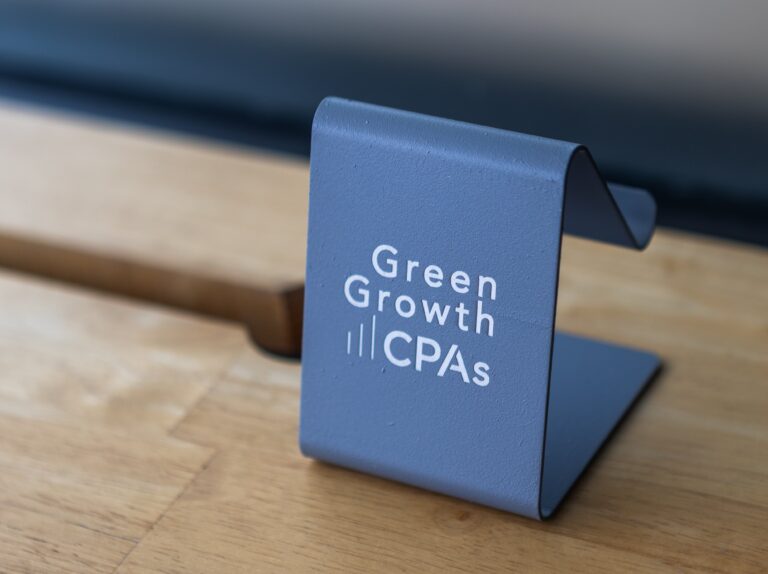When it comes to running a business, particularly one that regularly deals with cash transactions, understanding the ins and outs of IRS Form 8300 is crucial. Recently, the IRS has been auditing heavily cash-based businesses to ensure they complete Form 8300. This comprehensive guide will help demystify Form 8300, explaining who must file, when and how to file, the penalties for non-compliance, and the recent changes the IRS has implemented.
The IRS is targeting cash-heavy companies for failing to use Form 8300 correctly. The authorities are taking advantage of many operators’ lack of experience to institute steep fines and heavy penalties.
Introduction to Form 8300
Form 8300 is a crucial document for businesses that receive large cash payments. The IRS requires any trade or business that receives more than $10,000 in cash in a single transaction or related transactions to report this via Form 8300. This form is instrumental in providing valuable data to the IRS and the Financial Crimes Enforcement Network (FinCEN), assisting in their efforts to combat money laundering.
Key activities often concealed through money laundering include tax evasion, drug trafficking, and terrorist financing. The information on Form 8300 helps create an audit trail, aiding authorities in investigating possible criminal activities.
Typical cash-based transactions that require your business to file IRS Form 8300:
- Escrow arrangement contributions
- Pre-existing debt payments
- Negotiable instruments purchases
- Reimbursement of expenses
- Making or repaying a loan
- Sale of goods or services
- Sale of real and/or intangible property
- Rental of real or personal property
- Exchange of cash for other cash
- Custodial trust contribution
The requirement to file Form 8300 extends to any “person” involved in a trade or business. This includes individuals, companies, corporations, partnerships, associations, trusts, or estates. Suppose any part of the transaction occurs within any of the 50 states, the District of Columbia, or a U.S. possession or territory. In that case, the filing should be made with FinCEN electronically or in paper form with the IRS. These territories include American Samoa, The Commonwealth of the Northern Mariana Islands, Guam, Puerto Rico, and the U.S. Virgin Islands.
In short, file Form 8300 whenever your business receives more than $10,000 in cash from a single transaction. This could mean cash in one lump sum payment, two payments related to a single transaction that adds up to more than $10,000 within 24 hours, or $10,000 in cash in multiple installments associated with a single transaction over 12 months.
When Should You File Form 8300?
Form 8300 must be filed within 15 days of the cash transaction. Additionally, businesses must provide a written statement to each party named on Form 8300 by January 31 of the year following the reportable transaction. This statement must include your business’s name, address, contact person, telephone number, and the aggregate amount of reportable cash. It must also indicate that you provided this information to the IRS.
Failure to provide a written statement to each person named on Form 8300 can result in penalties. These penalty amounts are adjusted annually for inflation.
How Do You File Form 8300?
Effective January 1, 2024, businesses must electronically file (e-file) Forms 8300 instead of filing a paper return. Electronic filing will become mandatory in 2024 for all companies that must e-file other information returns, such as Forms 1099 series and Forms W-2. For instance, if you must file five Forms W-2 and five Forms 1099-INT, you must file certain other information returns electronically, including any Forms 8300. You’re not required to file electronically if you file less than ten total information returns other than Forms 8300.
Waivers and Exemptions
Businesses may request a waiver from filing information returns electronically due to undue hardship. If the IRS grants you a waiver from electronically filing information returns, the waiver automatically applies to all Forms 8300 for the duration of the calendar year. If given a waiver, a business must include the word “Waiver” on the center top of each Form 8300 (Page 1) when submitting a paper-filed return.
Moreover, if using the technology required to e-file conflicts with your religious beliefs, you are automatically exempt from filing Form 8300 electronically. However, when submitting the paper filed return, you must include the words “RELIGIOUS EXEMPTION” on the center top of each Form 8300 (page 1).
Businesses that are not required to file their Forms 8300 electronically but choose to mail in their Forms 8300 to the IRS physically will send their forms to:
Internal Revenue Service
Detroit Federal Building
P.O. Box 32621
Detroit, MI 48232
Penalties for Non-Compliance
Failure to comply with the rules of Form 8300 can lead to severe penalties, including civil and criminal penalties. These penalties increase for intentional disregard of the requirement to file. Late returns must be identified and submitted in the same way as a timely filed Form 8300. Failure to file timely includes failing to file in the required manner, leading to the Form 8300 is considered late and subject to penalty.
Form 8300 Record keeping Requirements
Businesses must keep a copy of Form 8300 for five years. When e-filing, save a copy of the form before you submit the return. Confirmation receipts do not fulfill the recordkeeping requirement.
Reporting Suspicious Transactions
Businesses may encounter situations where a transaction appears suspicious. If a person is trying to prevent a business from filing Form 8300 or to cause a business to file a false or incomplete Form 8300, or if there are signs of possible illegal activity, businesses can report these transactions as suspicious.
How to Create an SOP for Form 8300
Standard operating procedures are critical to maintaining compliance as you hire more employees and grow your business. Form 8300 requires its own guidelines to ensure you aren’t penalized by the IRS.
Step 1: Gather Customer Information
First, your team must collect certain information from the customer paying $10,000+ in cash. The information you need to report includes:
-
- First Name and Last Name of individual making cash payment
- Taxpayer identification number/social security number of individual making cash payment
- Address of individual making cash payment
- Driver license ID number and who it was issued by of individual making cash payment
- Legal entity name of the customer/business
- Taxpayer identification number/FEIN of the customer/business
- Address of the customer/business
Give your team directions on where to store the customer information for future reference securely.
Step 2: Collect Payment Information
Make sure to get a cash receipt and store it with a second person who can access the safe and maintain the cash log. Outline the proper checks and balances to ensure the person who collects the cash and the person who logs the money are separate entities maintaining accountability. After receiving the cash receipt, a second person must:
-
- Verify that the delivery has provided a signed invoice/shipping manifest as proof of cash receipt being received
- Ensure that critical information for filing Form 8300 is correctly logged and saved in your secure filing system
- Enter into the Cash Log the following information: Invoice number, Customer Name, and Cash amount received.
Step 3: Best Practices for Regular Compliance
The compliance officer and a cash custodian should regularly review 8300 transactions. Check cash logs to see if there are payments that trigger the 8300 reporting requirement. Make sure all the information has been saved to complete the 8300 form. Set up calendar reminders to make certain payments are submitted on time.
Conclusion: Stay Informed and Compliant
Form 8300 is critical for any business that handles large cash transactions. Understanding the rules and regulations surrounding this form is crucial for maintaining compliance and avoiding penalties.
As of January 1, 2024, the IRS requires businesses to e-file Forms 8300, making it even more critical for companies to familiarize themselves with this process. By staying informed and following the guidelines set out by the IRS, businesses can remain compliant while contributing to efforts to combat money laundering and other criminal activities.
Remember, if you have any questions or concerns about Form 8300, it’s always best to seek advice from a professional CPA or tax attorney. They can help guide you through the process and ensure you follow all necessary regulations.
At GreenGrowth CPAs, we’re here to help guide and empower you with informed business decisions. Our communication style emphasizes accessibility, accuracy, and advocacy, offering security and commitment to your business growth. Contact us today for more information on how we can assist with your Form 8300 filing and other business needs.





